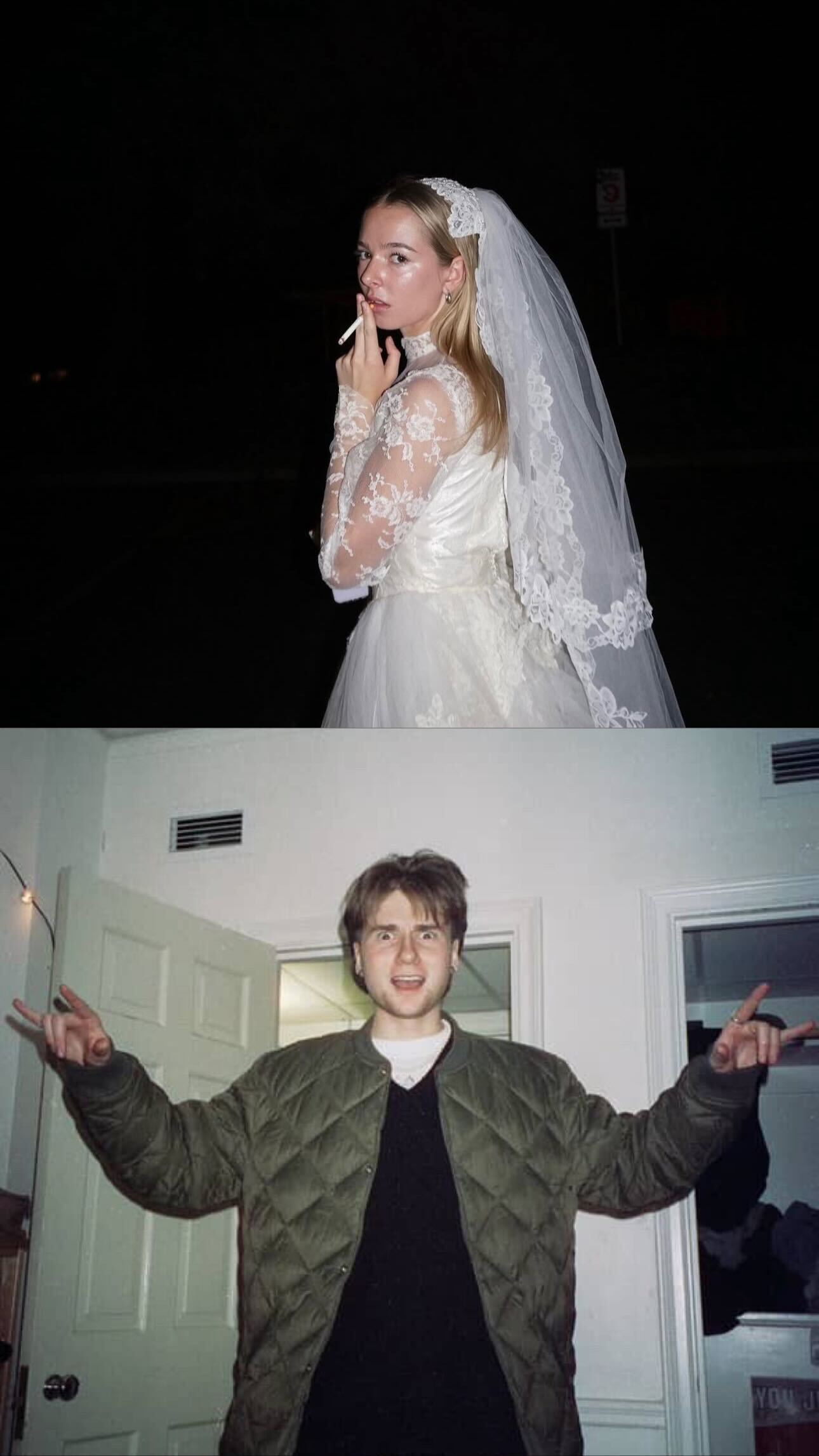
Icon of the week: Americans (visiting students)

Hilary is the August of Oxford. In many ways it is the strangest term. It is the summer of the Oxford year, starting in the midst of winter. A liminal road trip that seems to last forever. The turbulence of Michaelmas seems to be over. The doom of Prelims feels far in the distance. You are ready to settle, to claim the city as your own. You might even start thinking of becoming parents—to your college children next year. It is, after all, the term of wedding extravaganzas. One I have heard of at Christ Church started out from a ceremony by the boathouse at noon, to punting, to black tie dinner, to Bridge club night.
As it happens I was at a formal at Magdalen with my friend Oliver, who told me that he already has a college child. Not only that, she is a third year.
“She does history of art like you—at Stanford. She is here for a term.”
Exchange students are no strangers to Oxford—only if you have the eyes to see. When you’re settled with the college drama and navel gazing of Michaelmas and begin to look around: fresh faces from overseas, in your own green quads, Hilary freshers who are two years older.
I titled this piece—Americans, not at the erasure of American Oxford students, of whom I stan, but because I want to focus on the true, unassimilated American-in-Oxford experience. Those who are at the BOPs but are yet to have a Union card.
I met Sita at Blacksheep after we made friends on Instagram. She told me of a world that is simultaneously familiar and fictitious: sororities—of which she was the president of one; the silence of apoliticality on campus, the pressure for students, even in the humanities, to get into the business, fast—in short, the Californian Ideology.
Sita was in a black fur-lined coat and tortoiseshell glasses and looked like a Californian you’d find in the books of Eve Babitz. She is from San Diego, the southernmost of California. Yet there is something about her that is distinctively northern. She commented on the Joan Didion that I was pretentiously carrying. Apparently no one in California smokes cigarettes anymore.
Stanford House, 65 High Street, is grey with red framed windows, standing opposite Magdalen College. No one, at least very few I know, are aware of what it is, or what goes on behind the red door. It is, by all accounts, a world of its own.
Since 1984, Stanford has leased 65 and 66 High Street from Magdalen to accommodate about fifty of their students who are able to pursue part of their course in Oxford. Today, the house extends considerably in both directions from number 65 on the upper floor of other Magdalen houses. To the east, it occupies the upper floor of 62–64. To the west it spreads over six houses at 65–70, stopping when it reaches the Eastgate Hotel.
All of this resulted in an interior that is the dream of M.C. Escher. Parallel stairways going up and down in the world’s narrowest hallway. A thin strip exclave of America in the heart of England.
On her wall there was a postcard of Christina’s World. Over the window was Magdalen Library.
There is something inherently cool about someone who’s a bit older, from another country, and doesn’t give a shit about the hierarchy here, to whom the sociological manifestations of good old English repression are just another art historical case, like the Union or the Gothic.
Over a House formal, Sita was recounting, to the German postgrad sitting next to me, the time she went to this cabaret in SoHo and saw a sex show and how the men in there sat in silence, tight-lipped, tightly suited, watching a woman blowing fire out of her vagina.
“It’s so…Victorian!”
She spoke of how her family dumped their Tesla. How she would fight Musk if they’re left in a room. There is something fiercely American about patriotism. The idea that your country is not just what you are born into but what you make it to be, as the JFK quote goes.
“No leftist in Germany would say they love their country.”
After she went back she posted a story of her playing with her dog in what looked like the Colorado Desert. I replied: this land looks wonderful.
“It’s so great”
“I used to hate it”
“But now I have accepted my Americana’’
It recalls, for me, what Joan Didion said in that 1971 interview. “We all felt very keenly (about this land, Sacramento)…that we have to somehow make this one work…If there is nowhere else to go, you’re never going to put to that character test, you know?”
Over the vac I met Mark, a New Jerseyian at Keble, who also studies art history.
It was at King’s Arms on a Saturday night, in week God-knows-what. He was staying here until the 19th of April. I came back from London for it.
I knew Mark through friends from Merton, but also my proctor at Harvard, when I did a summer course, who is also at Middlebury College, Vermont—repped by Mark’s sweatshirt.
I asked Mark, what is there in Vermont besides snow and Bernie Sanders?
“Actually a lot”
“Really good food”
“Anything dairy”
“Ice cream, cheese”
“Beautiful farms”
“Beautiful hiking”
There was something about the indie music scene but I could not remember. One thing I enjoy about Americans is how talkative they are. They’ve always got stories to tell, places to go to. With Brits I have to make up things to talk about.
In America it seems that the stakes are higher. It is a nation of character. Even in the small town in New Jersey where Mark grew up, people could feel the wind blowing from DC—ICE agents started checking for migrants door-to-door. He heard of friends who had their phones checked when they landed back at the airport.
Mark mentioned being at spoons one time and meeting a bunch of Union—or as I later corrected, OUCA people, on a Sunday night, probably after Port & Policy. We spoke of the disproportionate representation of South Asian and gay men in that institution. Poppers & Policy. Future Icon of the Week?
He also spoke of a different Union, the one his family fought for in the 1860s. I told him what Žižek said last term when he came to the Union. “You guys are smart here—you have a black woman as the head of the Conservative Party.”
When I asked Sita what her ethnicity was she said White. Although what I meant was the rather classic, “where are you really from?” “Like Czechoslovakia or something.” Where Mark was really from was some mix of Irish and German and Italian. But obviously the only honest ways of describing them would be Californian and East Coast. In a way, the states are a little like Oxford colleges.
It had been difficult for us to meet as we work on very different schedules. Although in Oxford it is almost universally expected for people to live parallel lives.
Everyone here is kind of a tourist, including tourists of their own exteriors—in smoke and mirrors and Instagram stories.
The joke of where Oxford is still rings true: a tourist comes to see all the libraries, colleges. But where is the University? He asked. You are in it—by being out of it.
The same could perhaps be said of America.∎
Words by Zac Yang. Photos courtesy of Sita Antel, Mark McGoey, and Zac Yang.






